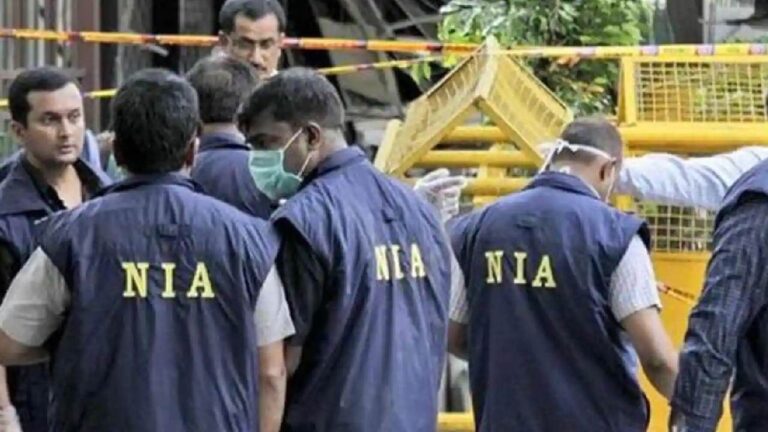News Desk, Kolkata : In the explosives recovery case in Mohammad Bazar, the National Investigation Agency (NIA) collected voice samples in connection with the apprehension of the main Trinamool leader Islam Choudhury. The NIA suspects that influential individuals aided in the illegal supply of arms and explosives. Various sources have indicated that substantial evidence is now in the hands of investigators. Islam Choudhury’s voice sample was reportedly obtained to confirm his involvement in this matter, and the NIA plans to send the samples to the CFSL (Central Forensic Science Laboratory) for further analysis.
According to NIA sources, several audio recordings were retrieved from Islam Choudhury’s mobile phone. The investigative team is eager to ascertain the identities of individuals mentioned in these recordings, and they are relying on the expertise of the NIA’s intelligence unit. The incident has brought attention to another individual, Sehgal Hossain, who has also been arrested in a case related to cattle smuggling. Currently, Sehgal is in custody, and the NIA intends to question him regarding any possible connection with Islam Choudhury.
The investigators are particularly interested in Sehgal’s communication with Islam Choudhury and are exploring the possibility of a significant alliance in the backdrop of the explosive recovery incident. The mention of Sehgal Hossain’s name in the scanner of investigators adds a layer of suspicion to the influential network associated with the case. The question arises: What powerful nexus might be involved in the illicit trafficking of explosives?
The year 2022 witnessed a shocking incident in Mohammad Bazar where the police, acting on a tip-off, intercepted a vehicle and seized a staggering 81,000 detonators. Subsequent investigations led to the discovery of 27,000 kilograms of ammonium nitrate, 1,925 kilograms of gelatin sticks, and an additional 2,325 detonators. The magnitude of the explosive materials raised alarms, casting a shadow of concern over the region. The Central investigative agency, NIA, took charge of the investigation.
Fast forward to the present, the case has taken a turn with the arrest of Sehgal Hossain in a cattle smuggling case. The NIA is keen to explore any possible links between Sehgal and Islam Choudhury, the Trinamool leader whose voice samples were collected in connection with the explosives case. The unfolding events point towards a complex web of clandestine activities involving influential figures and their associations.
As the investigators delve deeper, the focus shifts to the question of how this unlawful and potentially dangerous network operates. The recovery of explosives in significant quantities suggests a well-organized and covert operation, prompting authorities to consider the possibility of a larger conspiracy. The involvement of individuals like Sehgal Hossain raises concerns about the extent of the network’s reach and the connections it may have with other criminal activities.
The recent developments highlight the importance of thorough and meticulous investigations in uncovering the layers of criminal enterprises. The NIA continues its probe, determined to unravel the intricate web of those involved in the illegal supply of arms and explosives. As the story unfolds, the public awaits further revelations, eager to understand the depths of this clandestine operation and the implications it may have on the security landscape.
In conclusion, the Mohammad Bazar explosives case serves as a stark reminder of the challenges authorities face in tackling organized crime. The narrative, fueled by recent updates, underscores the urgency of addressing the complexities of such cases and the need for a comprehensive approach to ensure the safety and security of the region.
DISCLAIMER
Our news media denounces any form of bias and disapproves of sensationalism. The disseminated news is entirely educational and aimed at social awareness. Our media maintains absolute impartiality, adhering solely to the purpose of education and social consciousness.


